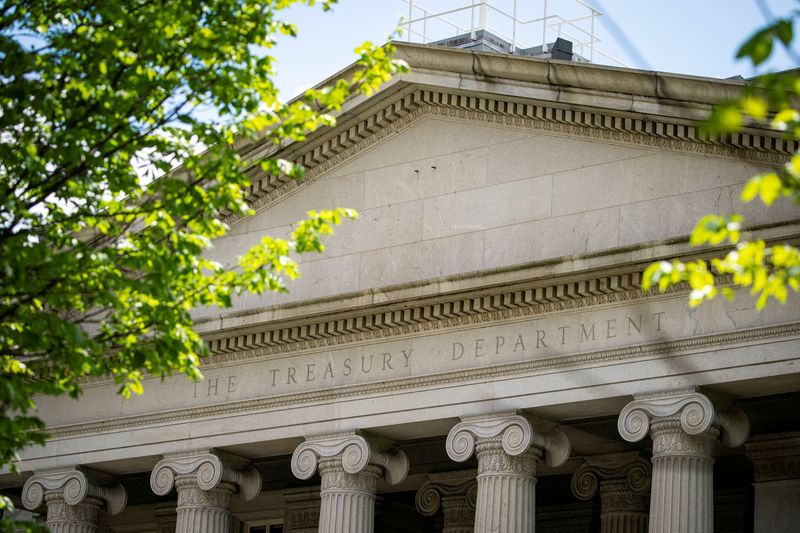By Davide Barbuscia
NEW YORK (Reuters) - The Office of Financial Research (OFR), a U.S. Treasury Department-based research powerhouse, said on Monday it has adopted a final rule that will allow it to collect data on certain transactions in the repurchase agreement (repo) market.
Most hedge fund activity in repo markets - where banks and other players such as hedge funds borrow short-term loans backed by Treasuries and other securities - is done bilaterally between brokers and customers.
By establishing data collection for non-centrally cleared bilateral transactions, regulators want to improve visibility into this opaque but vital funding market for Wall Street.
"The collected data will be used to support the work of the Financial Stability Oversight Council, its member agencies, and the OFR to identify and monitor risks to financial stability," the OFR said in a statement.
"The OFR's permanent data collection will shine a spotlight into this opaque corner of the financial market, provide high-quality data on (non-centrally cleared bilateral repo) transactions, and remove a significant blind spot for financial regulators," it said.
The rule, which becomes effective 60 days from Monday's publication, establishes two categories of companies subject to reporting, a timeline for the submission of data and a number of specific data elements required to be reported.
The announcement coincides with a broader regulatory effort to contain potential episodes of stress in the $27 trillion U.S. government debt market - a building block of the global financial system.

In particular, regulators have zeroed in on the basis trade, a popular hedge fund arbitrage trading strategy in Treasuries which is largely financed through bilateral repo deals. The unwinding of this trade is believed to have worsened market stress at the height of the COVID-19 pandemic in March 2020.
In December, the U.S. Securities and Exchange Commission approved a key reform to boost the use of central clearing for U.S. Treasuries which will apply to the cash Treasury and repo markets. More centrally cleared trades could reduce the risk of disruption to counterparties caused by a rapid unwinding of hedge funds' leverage, analysts have said.